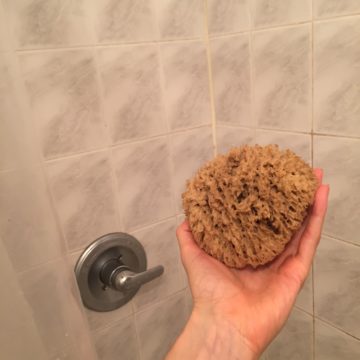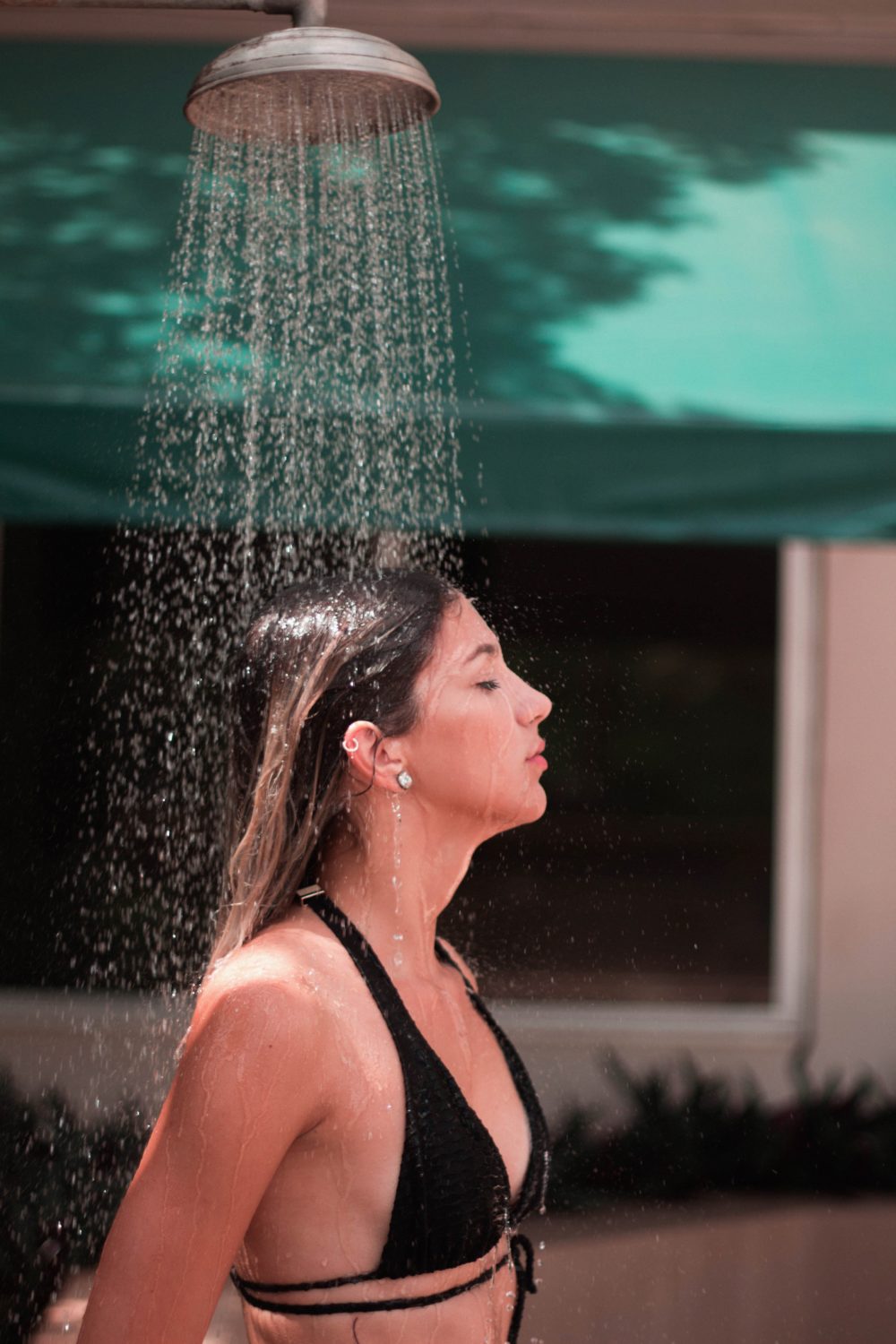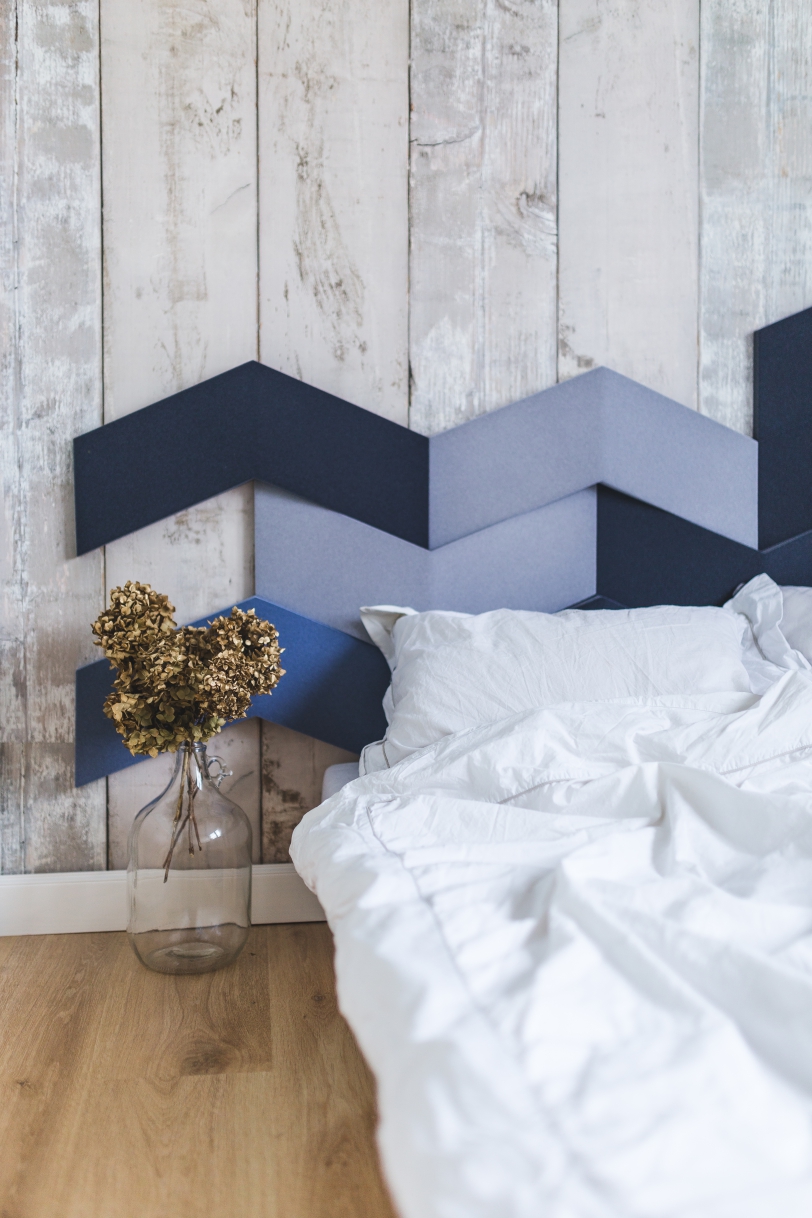
Transform your shower into a seaside getaway with a naturally antibacterial, exfoliating, and sustainable sea sponge!
In the summertime, multiple showers per day can be more of a necessity than a luxury. Lucky for me, because despite my aversion to heat and humidity in general I’m a woman who genuinely loves any and all kinds of cleansing. I thought I’d perfected my eco-friendly showering routine by keeping my time under the water to 8 minutes, switching from plastic- and SLS-laden shower gel to vegan bar soap and in-shower moisturizer bars, and using a durable charcoal vegetable sponge instead of a synthetic mesh pouf. Turns out there was one more way to up my shower game by taking it even closer to another summertime getaway, the beach, with natural sea sponges.
On the surface, it may seem incredibly unsustainable to harvest these living organisms from the ocean. The list of harms we’re inflicting upon marine ecosystems through industrial fish farming, deep sea trawling, pollution, climate change, and agricultural runoff among other things would be an article unto itself. Such a luxury item for a first-world citizen surely shouldn’t be added to the mix, right? Wrong.
These hearty plants (and therefore vegan-friendly, compared to coral which are considered animals) are capable of regeneration even after harvesting when it’s done sustainably, and even show increased population in areas where they are cultivated. Of the over 5,000 species in the oceans, fewer than 12 are harvested for human use. Given that they’re grown in the ocean, these sponges also contain natural bacteria-fighting enzymes that allow them to last for years; since they have no other additives, they’re also good for sensitive skin. Compare that to the Konjac sponge I was using, which is also all-natural and biodegradable but isn’t self-cleaning; as a result it needed to be swapped out every two months (according to the package).
Besides these clear benefits for the earth, sea sponges make shower time even more luxurious. Using the Konjac sponge had left me accustomed to a disappointingly low-lather wash, requiring multiple passes over my bar of soap to get the job done; and after that there was always a little bit of soapy remains that wouldn’t quite rinse out, making me doubt the cleanliness of the sponge.
With the sea sponge, my soap felt like a whole new product. The lather was rich and, combined with the soft, gently exfoliating texture of the sponge itself, I emerged with skin like silk—no more of that dry tightness that can come from bar soap. Within just a few hours it had dried itself out, too, proving to me why this new bath buddy wouldn’t grow anything funky.
If you’re thinking of trying a sea sponge or already have one, consider these tips:
- Try it on! Hold a few sponges in your hand and find one that fits just right so you won’t lose your grip when you’re all wet and sudsy.
- To clean your sponge, you can soak it in a solution of warm water and baking soda every week or so, but it’s not necessary as long as you let it air dry completely.
- Use a mini sea sponge for your face or for tiny bodies (i.e., babies—they’re gentle enough even for this delicate skin!).
- Complement your sponge’s natural mineral properties by following with a sea salt exfoliator.

I bought my sponge from Dirty Mermaid Beauty, a local company who partners with fisherman in Micronesia to harvest their products. In addition to helping this local economy, my purchase helped to support the Marine Environmental Research Institute of Pohnpei. To make your sponge truly sustainable, consider buying a local vendor near you—then head outside, soak up as much heat as you can, and look forward to rinsing it all away with a shower that feels like a refreshing dip in the ocean.
Have you tried showering with a natural sea sponge?
Also by Jennifer: Guess What, Your Gut Affects Your Personality–& Other Facts About Your Insides
Related: 5 Seriously Genius Beauty Tricks You Need To Be Doing In The Shower, STAT
Eek—Are You Making These Common Shower Mistakes? How To Protect Your Skin & Hair
Get more like this—Subscribe to our daily inspirational newsletter for exclusive content!
__
Photo: Jennifer Kurdyla, Laura Marques on Unsplash




